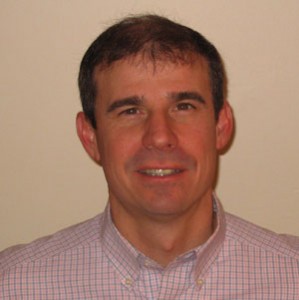He is director in global pharmaceutical commercialization for Merc
 For Richard Osifchin ’86, the best part of his job is that he gets to apply his knowledge of chemical engineering and chemistry to help people battle tough healthcare issues.
For Richard Osifchin ’86, the best part of his job is that he gets to apply his knowledge of chemical engineering and chemistry to help people battle tough healthcare issues.
He is a director in global pharmaceutical commercialization for Merck & Co., Inc. in New Jersey. Osifchin began his career with Merck 15 years ago as a chemical engineer in a technical services role in Virginia. Now he manages the research pilot plant facilities that support clinical product development and chemical process development for new active pharmaceutical intermediates, the active ingredients in drugs.
“It’s an interesting application of chemical engineering science in a field which allows you to have a significant positive impact on the lives of many people worldwide,” he says.
Recently, he was part of a team that received the Presidential Green Chemistry Award for the synthesis of the active ingredient in Januvia, a drug Merck launched last year to help lower blood sugar levels in patients with type-2 diabetes. His team was responsible for managing the supplies to support the clinical program and launch the product.
His college classes prepared Osifchin well for his career.
“Certainly the chemical engineering curriculum supported what I do now,” he says. “And the education is diverse such that the curriculum addresses not only the scientific and technical requirements, but also the non-technical elements that you may not get in a more technically-oriented chemical engineering program.”
Osifchin believes his undergraduate years shaped him into a well-rounded individual who excelled academically and also pursued outside interests, including varsity athletics.
“The [chemical engineering] department was small enough that you received a lot of individual attention,” he says. “I was able to manage academics and athletic commitments because the program was flexible enough to accommodate individual student needs. Running cross country, indoor, and outdoor track limits the time you can spend on academics, but forces you to develop a disciplined approach to planning your time and organizing your work. Demonstrating academic success while managing multiple activities outside your academic program is key to landing a good job.”
Osifchin often visits campus to provide career advice to students. He started recruiting at Lafayette a couple years ago. He conducts interviews, hosts information sessions, and attends career fairs. This year, Merck will begin offering externships.
“I enjoy it,” he says. “It’s a good opportunity to meet folks who are on campus, keep in contact with faculty, and stay abreast of things happening on campus. It also serves Merck in identifying potentially good candidates to hire on and support its success.”
 For Richard Osifchin ’86, the best part of his job is that he gets to apply his knowledge of chemical engineering and chemistry to help people battle tough healthcare issues.
For Richard Osifchin ’86, the best part of his job is that he gets to apply his knowledge of chemical engineering and chemistry to help people battle tough healthcare issues.